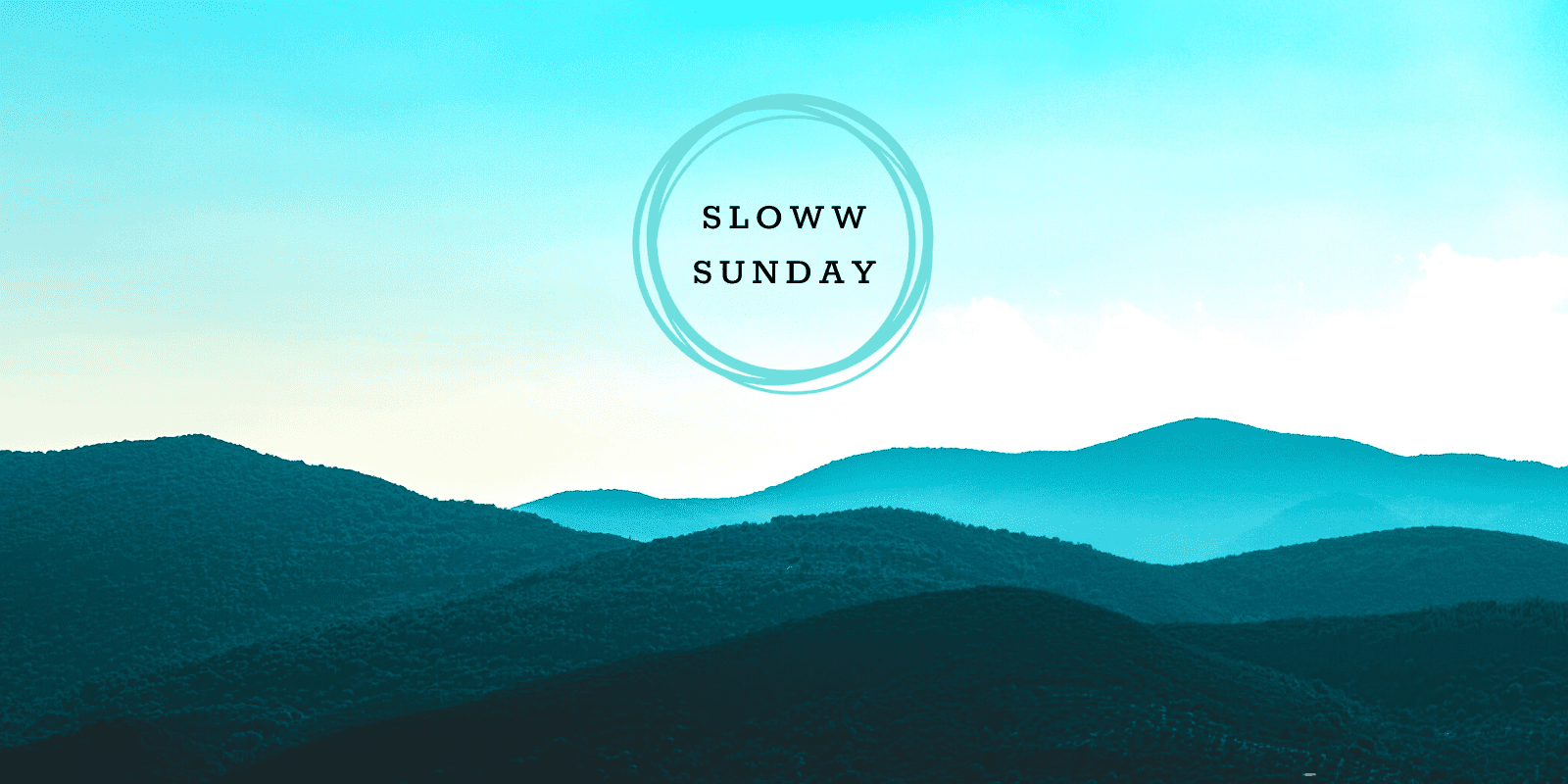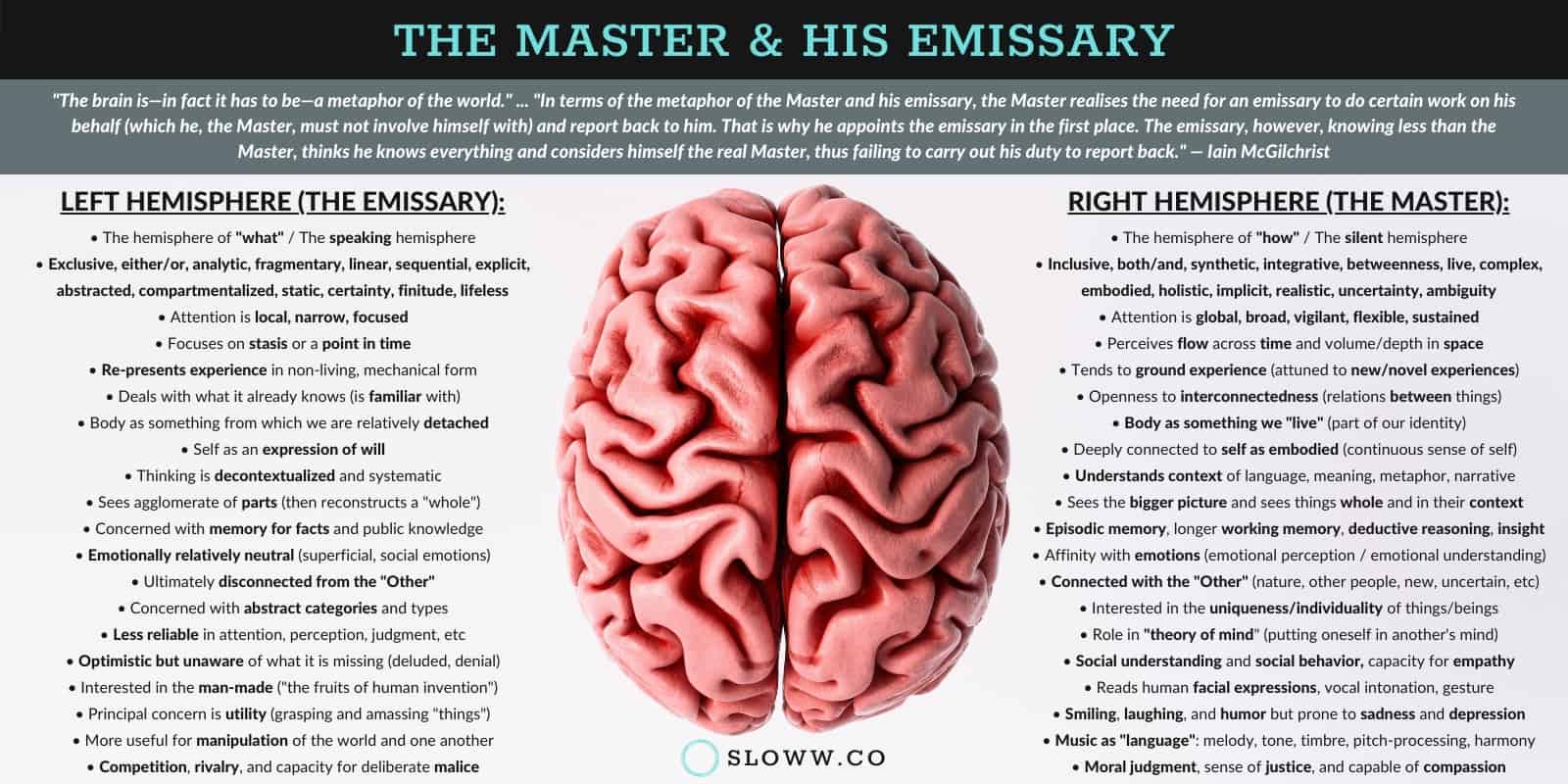Sign up to get the Sloww Sunday newsletter via email for free:👇

Sloww Sunday Newsletter 141 (Apr 23, 2023) — Indigenous Living, Split Brains, Zen Wisdom, & More
Sloww Sunday shares creations from Sloww along with curations of fascinating finds to 10,000+ students of life. If you enjoy this issue, please help grow Sloww by forwarding the email version of this newsletter to other lifelong learners.
📚 Lifelong Learning
How to teach Complex Ideas
I just published a new book summary of Teaching Complex Ideas: How to Translate Your Expertise into Great Instruction by Arnold Wentzel. Whether you are an educator of any kind, a knowledge worker who makes persuasive presentations, or just someone who wants to communicate more effectively in life, this book offers some good tips: identifying critical ideas, creating great explanations, forgetting and interestingness, understanding and reasoning, and more.
“To summarize this book: professor-experts are those that help students grasp the critical ideas so that they continue to expand that understanding for as long as they live. They teach less, explain better, encourage forgetting, upset preconceptions, release natural reasoning, assess authentically, notice more and exploit the uniqueness of learning events.”
🌎 Lighter Living
The Pirahã People
This may be the epitome of lighter living in many ways. The Pirahãs are indigenous hunter-gatherers living in the Amazon (Wikipedia). Daniel Everett, a linguist and author, has studied the Pirahãs for four decades now. What he’s discovered is fascinating and is highlighted in his TEDx Talk, talk at the Long Now, and bestselling book Don’t Sleep, There Are Snakes.
The Pirahã people don’t have numbers in their language, don’t concern themselves with past and future, don’t have social hierarchy, don’t have religious beliefs, and don’t fear death. Instead, they focus on living in the present, and they require evidence based on personal experience for every claim made (they are concerned with direct personal experience, and there is no history beyond living memory).
”What I have found over the years is that new information is hard to come by when we surround ourselves by people who look like us, and talk like us, and eat like us, and think like us. There’s very little room for additional learning.” — Daniel Everett
Explore more: How do I design a lighter life? (Sloww Stage 1)
🧭 Deeper Purpose
What fuels Daniel Schmachtenberger?
I’ve been following Daniel Schmachtenberger and his work on the meta-crisis for a few years now. If you aren’t familiar with Daniel, here’s an intro to him (+ 🔒Premium Synthesis) along with an intro to his work with The Consilience Project (+ 🔒Premium Synthesis).
This week, I watched a new podcast with Daniel that dives deeper into how he became who he is and why he does what he does. It’s a wonderful look behind-the-scenes of his life that he hasn’t often shared elsewhere (also check out some highlights from his lottery of birth).
”My parents had the thought that there’s no reason bedtime stories for kids need to be Dr. Seuss as opposed to ‘Synergetics’ by Bucky Fuller because kids are learning language no matter what … I was pretty fortunate in a way that not lots of other people were in terms of early childhood exposure to the topic of ‘what is my path?’ I had parents that were putting that question as the forefront of my education since I was born.” — Daniel Schmachtenberger
Explore more: How do I find higher purpose (Sloww Stage 2)?
Get the eBook: Ikigai 2.0: A Step-by-Step Guidebook to Finding Life Purpose & Making Money Meaningfully (+ Bonus Workbook)
🧠 Mental Wealth
Brain Hemispheres & Split Brains
I’m wrapping up a book summary for No Self, No Problem by Chris Niebauer PhD which is about how modern neuropsychology and ancient spirituality (particularly Buddhism) point to the same things. The book (and companion workbook) are easy reads and essentially introductions to brain hemisphere research (here’s an example of split-brain studies you should know).
“Practically every function of the mind has been mapped to the brain with one important exception: the self. While various neuroscientists have made the claim that the self resides in this or that neural location, there is no real agreement among the scientific community about where to find it—not even whether it might be in the left or the right side of the brain. Perhaps the reason we can’t find the self in the brain is because it isn’t there.” — Chris Niebauer
Pair with Iain McGilchrist’s extensive synthesis on the brain hemispheres:

Explore more: How do I master the mind (Sloww Stage 3)?
Get Mini Mind: 365 Daily Emails of Bite-Size Brain Food
☯️ Timeless Wisdom
Shunryu Suzuki on Zen
I started reading Zen Mind, Beginner’s Mind by Shunryu Suzuki (book summary coming soon). Here are two video intros to Suzuki (here and here) along with a few favorite inspirational quotes so far:
- “The teaching which is written on paper is not the true teaching. Written teaching is a kind of food for your brain. Of course it is necessary to take some food for your brain, but it is more important to be yourself by practicing the right way of life.” — Shunryu Suzuki
- “Leave your front door and your back door open. Let thoughts come and go. Just don’t serve them tea.” — Shunryu Suzuki
- “A master who cannot bow to his disciple cannot bow to Buddha.” — Shunryu Suzuki
Explore more: How do I embody wisdom (Sloww Stage 4)?
Share: Sloww Sunday currently sends to 10,000+ students of life each week. If you enjoyed this issue, please help grow Sloww by forwarding the email version of this newsletter to some friends and family. It’s free for them to subscribe here.
Support: Sloww is a one-human labor of love (it’s just me over here 👋). Your support keeps the site ad-free and invests in me while you invest in yourself—a true win-win! There are free and financial ways to support.
Speak: Have something you want to say, or just want to say hi? It’s always greatly appreciated. Just reply to this email or reach out socially.
Go with the Sloww,
Kyle Kowalski
Synthesizer & Solopreneur




